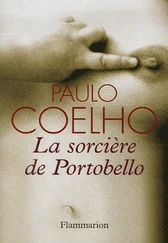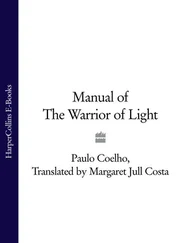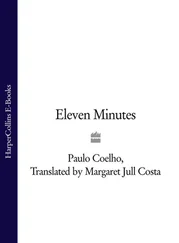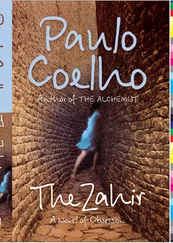Paulo Coelho - Adultery
Здесь есть возможность читать онлайн «Paulo Coelho - Adultery» весь текст электронной книги совершенно бесплатно (целиком полную версию без сокращений). В некоторых случаях можно слушать аудио, скачать через торрент в формате fb2 и присутствует краткое содержание. Год выпуска: 2014, ISBN: 2014, Издательство: Knopf Doubleday Publishing Group, Жанр: Старинная литература, на английском языке. Описание произведения, (предисловие) а так же отзывы посетителей доступны на портале библиотеки ЛибКат.
- Название:Adultery
- Автор:
- Издательство:Knopf Doubleday Publishing Group
- Жанр:
- Год:2014
- ISBN:978-1-101-87409-7
- Рейтинг книги:2 / 5. Голосов: 2
-
Избранное:Добавить в избранное
- Отзывы:
-
Ваша оценка:
- 40
- 1
- 2
- 3
- 4
- 5
Adultery: краткое содержание, описание и аннотация
Предлагаем к чтению аннотацию, описание, краткое содержание или предисловие (зависит от того, что написал сам автор книги «Adultery»). Если вы не нашли необходимую информацию о книге — напишите в комментариях, мы постараемся отыскать её.
Adultery — читать онлайн бесплатно полную книгу (весь текст) целиком
Ниже представлен текст книги, разбитый по страницам. Система сохранения места последней прочитанной страницы, позволяет с удобством читать онлайн бесплатно книгу «Adultery», без необходимости каждый раз заново искать на чём Вы остановились. Поставьте закладку, и сможете в любой момент перейти на страницу, на которой закончили чтение.
Интервал:
Закладка:
We start running. On one side are gardens; on the other, seagulls and sailboats making the most of the mistral. The wind didn’t stop on the third day, nor on the sixth. It must be nearing its ninth day, when it will disappear and take with it the blue sky and the good weather. We run along the track for fifteen minutes. We’ve left Nyon behind us and had better head back.
I haven’t exercised in ages. When we’ve been running for twenty minutes, I stop. I can’t go on. I’ll have to walk the rest of the way.
“Of course you can do it!” encourages my husband, jogging in place so as not to lose his rhythm. “Don’t stop, keep running.”
I bend forward, resting my hands on my knees. My heart is pounding; it’s the fault of all those sleepless nights. He keeps jogging circles round me.
“Come on, you can do it! It’s worse if you stop. Do it for me, for the kids. This isn’t just a way of getting some exercise, it’s reminding you that there’s a finish line and that you can’t give up halfway through.”
Is he talking about my “compulsive sadness”?
He stops jogging, takes my hands, and gently shakes me. I’m too tired to run, but I’m too tired to resist as well. I do as he asks. We run together for the remaining ten minutes.
I pass billboards for the various Council of States candidates, which I hadn’t noticed before. Among the photos is one of Jacob König, smiling at the camera.
I run more quickly. My husband is surprised and speeds up. We get there in seven minutes instead of ten. The children haven’t moved. Despite the beautiful surroundings—the mountains, the seagulls, the Alps in the distance—they have their eyes glued to the screen of that soul-sucking machine.
My husband goes to them, but I keep running. He watches me, surprised and happy. He must think his words have had an effect and are filling my body with the endorphins that fill our blood whenever we do some physical activity with a slight intensity, like when we run or have an orgasm. The hormones’ main effects are improving our mood, boosting our immune system, and fending off premature aging, but, above all, they provoke a feeling of euphoria and pleasure.
However, that isn’t what the endorphins are doing for me. They’re merely giving me the strength to carry on, to run as far as the horizon and leave everything behind. Why do I have to have such wonderful children? Why did I have to meet my husband and fall in love? If I hadn’t met him, I’d be a free woman now.
I’m mad. I should run straight to the nearest mental hospital, because these are not the kinds of things one should think. But I continue to think them.
I run for a few more minutes, then go back. Halfway, I’m terrified by the possibility that my wish for freedom will come true and I’ll find no one there when I go back to the park in Nyon.
But there they are, smiling at their loving mother and spouse. I embrace them all. I’m sweating, my body and mind dirty, but still I hold them close.
Despite what I feel. Or, rather, despite what I don’t feel.
YOU don’t choose your life; it chooses you. There’s no point asking why life has reserved certain joys or griefs, you just accept them and carry on.
We can’t choose our lives, but we can decide what to do with the joys or griefs we’re given.
That Sunday afternoon, I’m at the party headquarters doing my professional duty. I managed to convince my boss of this, and now I’m trying to convince myself. It’s a quarter to six and people are celebrating. Contrary to my fevered imaginings, none of the elected candidates will be holding a reception, and so I still won’t get a chance to go to the house of Jacob and Marianne König.
When I arrive, the first results are just coming in. More than forty-five percent of the electorate voted, which is a record. A female candidate came out on top, and Jacob came in an honorable third, which will give him the right to enter government if his party chooses him.
The main hall is decorated with yellow and green balloons. People have already started to drink, and some make the victory sign, perhaps hoping that tomorrow their picture will appear in the newspaper. But the photographers haven’t yet arrived; after all, it’s Sunday, and the weather is lovely.
Jacob spots me at once and immediately looks the other way, searching for someone with whom he can talk about matters that must, I imagine, be extraordinarily dull.
I need to work, or at least pretend to. I take out my digital recorder, a notebook, and a felt-tip pen. I walk back and forth, collecting statements such as “Now we can get that law on immigration through” or “The voters realize that they made the wrong choice last time and now they’ve voted me back in.”
The winner says: “It was the female vote that really counted for me.”
Léman Bleu, the local television station, has set up a studio in the main room, and its female political presenter—a vague object of desire for nine out of ten men there—is asking intelligent questions but receiving only the sound bites approved by the political aides.
At one point, Jacob König is called for an interview, and I try to get closer to hear what he’s saying. Someone blocks my path.
“Hello, I’m Madame König. Jacob has told me a lot about you.”
What a woman! Blond, blue-eyed, and wearing an elegant black cardigan with a red Hermès scarf, although that’s the only famous brand name I can spot. Her other clothes must have been made exclusively by the best couturier in Paris, whose name must be kept secret in order to avoid copycat designs.
I try not to look surprised.
Jacob told you about me? I did interview him, and, a few days later, we had lunch together. I know journalists aren’t supposed to have an opinion about their interviewees, but I think your husband is a brave man to have gone public about that blackmail attempt.
Marianne—or Mme König, as she introduced herself—pretends to be interested in what I’m saying. She must know more than she is letting on. Would Jacob have told her what happened during our meeting in the Parc des Eaux-Vives? Should I mention it?
The interview with Léman Bleu has just begun, but she doesn’t seem to be interested in listening to what her husband says. She probably knows it all by heart, anyway. She doubtless chose his pale blue shirt and gray tie, his beautifully cut flannel jacket, and the watch he’s wearing—not too expensive, to avoid appearing ostentatious, but not too cheap, either, to show a proper respect for one of the country’s main industries.
I ask if she has anything to say. She replies that as an assistant professor of philosophy at the University of Geneva, she would be delighted to comment, but as the wife of a reelected politician, that would be absurd.
It seems to me that she’s provoking me, and so I decide to pay her back in kind.
I say I admire her dignity. She knew her husband had had an affair with the wife of a friend and yet she didn’t create a scandal. Not even when it appeared in the newspapers just before the elections.
“Of course not. When it’s a matter of consensual sex without love, I’m in favor of open relationships.”
Is she insinuating something? I can’t quite look into the blue beacons that are her eyes. I notice only that she doesn’t wear much makeup. She doesn’t need to.
“In fact,” she says, “it was my idea to get an anonymous informer to tell the newspaper the week before the elections. People will soon forget a marital infidelity, but they’ll always remember his bravery at denouncing corruption even though it could have had serious repercussions for his family life.”
She laughs at that last bit and tells me that what she’s saying is strictly off the record, of course, and should not be published.
Читать дальшеИнтервал:
Закладка:
Похожие книги на «Adultery»
Представляем Вашему вниманию похожие книги на «Adultery» списком для выбора. Мы отобрали схожую по названию и смыслу литературу в надежде предоставить читателям больше вариантов отыскать новые, интересные, ещё непрочитанные произведения.
Обсуждение, отзывы о книге «Adultery» и просто собственные мнения читателей. Оставьте ваши комментарии, напишите, что Вы думаете о произведении, его смысле или главных героях. Укажите что конкретно понравилось, а что нет, и почему Вы так считаете.

